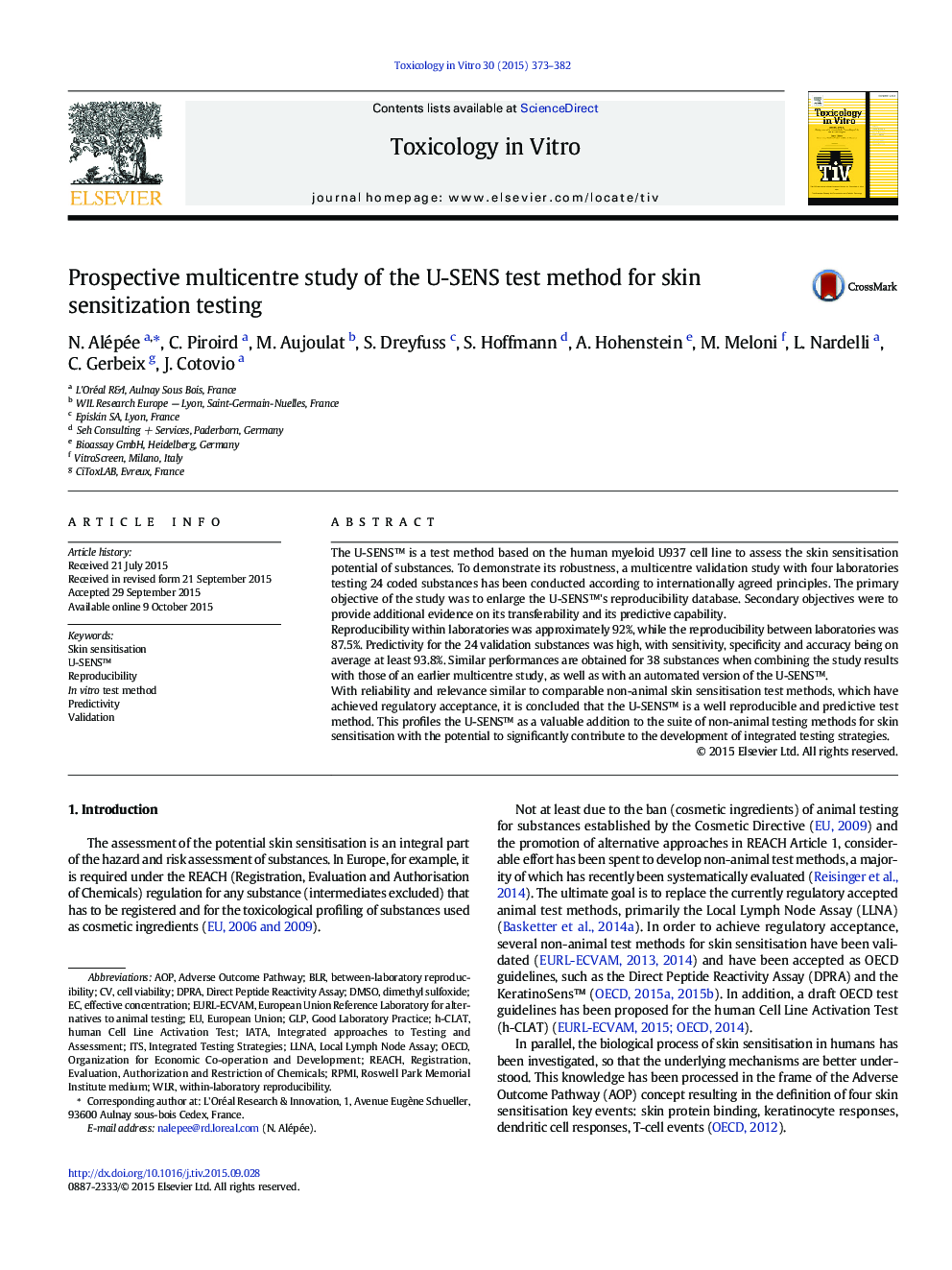| Article ID | Journal | Published Year | Pages | File Type |
|---|---|---|---|---|
| 2602445 | Toxicology in Vitro | 2015 | 10 Pages |
•The Myeloid U937 Skin Sensitization Test (U-SENS™) addresses dendritic cell response's key event.•A validation study has been conducted with four laboratories on 24 substances.•Reproducibility within laboratories was 91.7%.•Reproducibility between laboratories was 87.5% (21/24 substances).•Overall 38 chemicals tested in the 2 multicentre studies gave similar performances.
The U-SENS™ is a test method based on the human myeloid U937 cell line to assess the skin sensitisation potential of substances. To demonstrate its robustness, a multicentre validation study with four laboratories testing 24 coded substances has been conducted according to internationally agreed principles. The primary objective of the study was to enlarge the U-SENS™'s reproducibility database. Secondary objectives were to provide additional evidence on its transferability and its predictive capability.Reproducibility within laboratories was approximately 92%, while the reproducibility between laboratories was 87.5%. Predictivity for the 24 validation substances was high, with sensitivity, specificity and accuracy being on average at least 93.8%. Similar performances are obtained for 38 substances when combining the study results with those of an earlier multicentre study, as well as with an automated version of the U-SENS™.With reliability and relevance similar to comparable non-animal skin sensitisation test methods, which have achieved regulatory acceptance, it is concluded that the U-SENS™ is a well reproducible and predictive test method. This profiles the U-SENS™ as a valuable addition to the suite of non-animal testing methods for skin sensitisation with the potential to significantly contribute to the development of integrated testing strategies.
